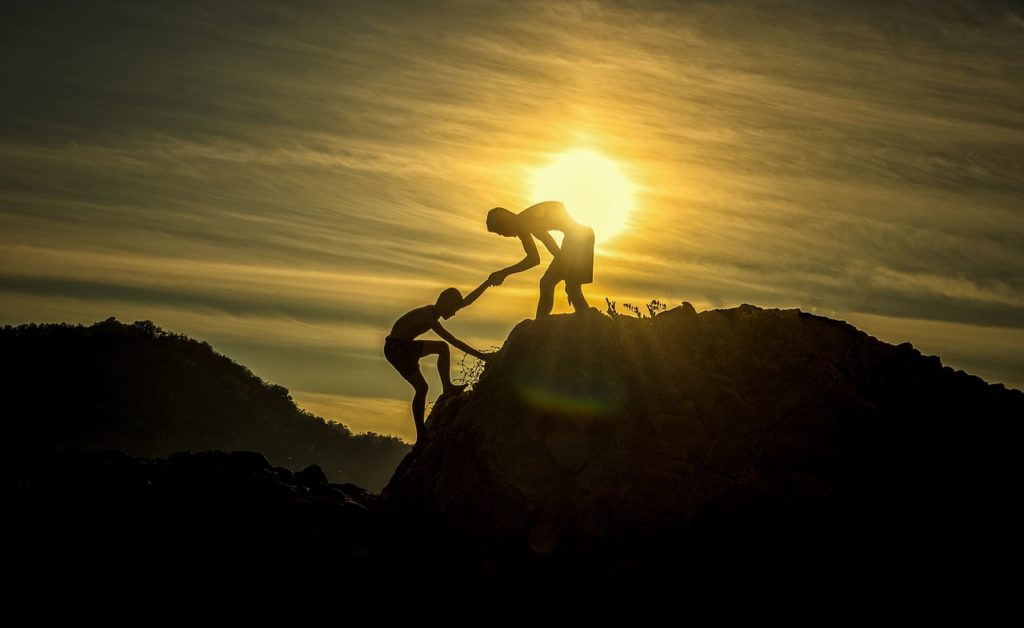The Road Alone
When you’re a small child, you put more thought into who takes care of you. You need that support and the security of knowing you have that support indefinitely. It’s actually frightening to a small child to think that mom or dad isn’t coming home. It’s traumatic and not just because of the loss of a loved one but for the loss of care. Children are reliant on adults to care for them.
As an adult, we don’t think much about someone taking care of us. It’s like a road alone. We’re self-reliant and independent. We learn to do for ourselves and maybe even for others. Many of us have learned something else: how to not expect help from others. We’re taught to do for ourselves or get nothing. We know life is hard and it takes work. There are no handouts and no coddling.
Sure handouts sometimes recreate an unhealthy reliance and coddling is not typically needed for adults. But it’s possible we miss something in this stark denial of care from others. We miss connection and healthy dependency. Yes! Healthy dependency! The ability to rely on another person for help when you’re down and out is actually a good thing. This doesn’t make us weak or incapable but actually more secure in ourselves. We begin to realize that we’re confident enough to let down our guards and be helped and cared for once in a while.
A Team Effort
Just like a basketball player can play one against five on his own (okay basketball fans, comment here), we need a team effort. We need someone in our corner for work venting, childcare, health questions, marriage concerns… Name it, any area or aspect of life and we need some kind of support. It may not be the same person for each area of need. It may be one person for a few areas and a group of people for another few. Having a team is important to tackle any obstacle.
Imagine your spouse is ill and you have a shift to get to. Who takes the kiddos? Does someone need to pick up groceries? If you’re facing a difficult decision, can you ask for advice? These are natural human things to which we’re inclined. We are designed for community. What has brought us away is false teaching (“Suck it up! Be a man!”) and poor experiences (rejection, denials, negative reactions, etc.)
Choosing Allies
So how do we avoid, well, avoiding care and help from others? How do we go about choosing our allies?
It starts with trust, expertise, and vulnerability. We need to build trust in others first, which may take time, especially if we’ve been taught not to trust. We also need to consider the person’s expertise. You don’t ask your babysitter for work advice or your doctor to come babysit, at least not typically.
The third is likely the hardest: vulnerability. A child doesn’t think twice about handing off a difficult task to a trusted adult. Once we have that established trust and know a person is right for the need we present, we need to be vulnerable. Maybe your vulnerability ends with, “Hey, can you pick up milk while you’re at the store. I’m low on gas.” Maybe it’s deeper, like, “I’m having a hard time with my wife. After what you’ve been through, I was hoping we could talk sometime this week.” Some scenarios take real courage and really greater confidence knowing that vulnerability doesn’t equal weakness.
Moving Forward Together
First responder life is a team effort and that doesn’t end when you punch out. All areas of life can pose challenges and it’s okay to reach out for help. There’s no rule that says once you’re an adult, no one has to care for you. You can be a fully responsible and self-reliant person and still ask for help. People do care about you, so why not (at least sometimes) let them care for you too.
